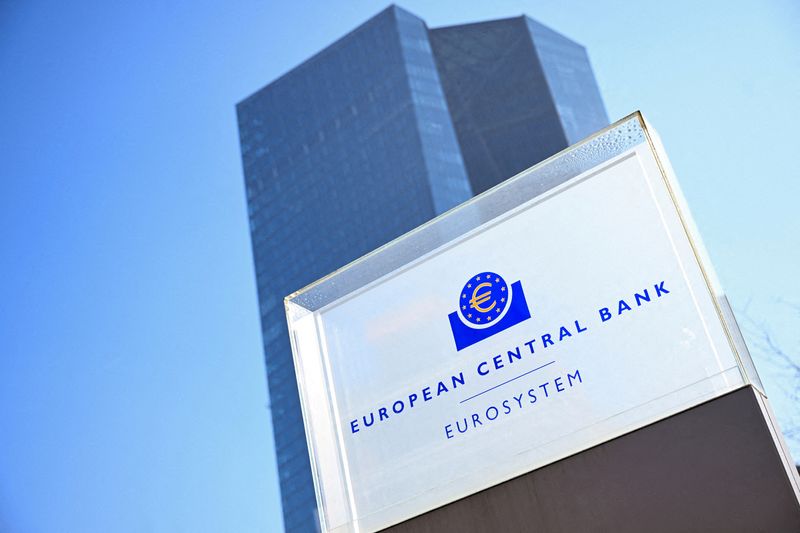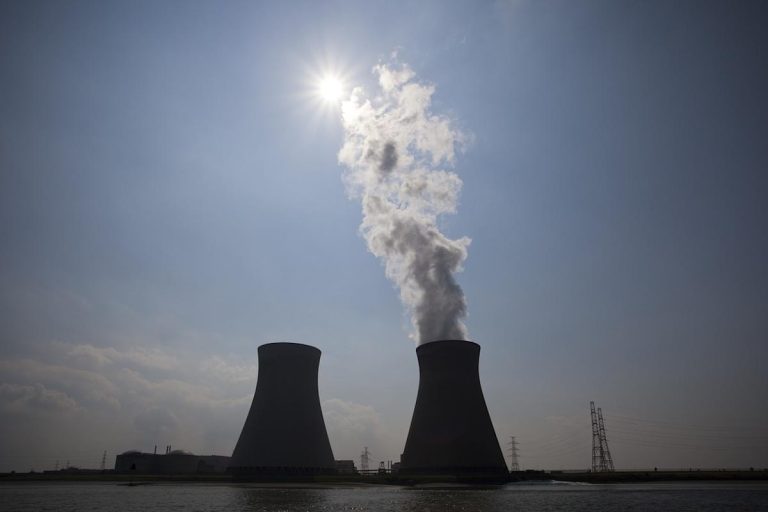By Dhara Ranasinghe and Stefano Rebaudo
LONDON (Reuters) -The European Central Bank is tipped to cut interest rates on Thursday, its eighth move this cycle, with traders sensing a pause will then follow as the economy holds up better than anticipated and longer-term inflation worries creep back.
U.S. tariff uncertainty, heightened further by a court plot twist, makes the backdrop challenging as the ECB weighs any near-term hit to business activity against implications for inflation further out.
“The last thing the ECB wants is to be unnecessarily drawn back to a world with limited policy room,” said PIMCO portfolio manager Konstantin Veit.
Here are five key questions for markets:
1/ What will the ECB do on Thursday?
A rate cut will come as no surprise to markets, which price in a quarter point reduction of the deposit rate to 2% as inflation eases and U.S. tariffs cast a shadow over the euro area.
The economy is still just limping along and latest surveys point to only lukewarm optimism among firms as services also appear surprisingly weak.
“A rate cut is a done deal,” said ING’s global head of macro Carsten Brzeski. “Even the hawks have not been very outspoken.”
2/ And after June?
There’s a growing consensus that the ECB will pause in July, with one more rate cut anticipated by year-end.
ECB chief Christine Lagarde is unlikely to give traders the confirmation they are looking for, stressing data-dependency.
In the near-term, inflation could drop further and even undershoot the bank’s 2% target, bolstering the case for another cut. But factors including increased government spending and tariffs could exacerbate price pressures in the longer term.
ECB board member and policy hawk Isabel Schnabel already favours a pause, saying that tariffs may be disinflationary near-term but pose upside risks further out. Chief economist Philip Lane says the ECB needs to find a “middle path.”
Swiss Re’s head of macro strategy Patrick Saner said the ECB will probably want to reassess over the summer.
“We’re looking at a cautious easing cycle, not a sprint,” Saner added.
3/ What does U.S./EU trade tension means for the ECB?
Additional uncertainty.
The European Union has won a reprieve from U.S. President Donald Trump’s threatened 50% tariffs. But it remains unclear how the bloc will square its push for a mutually beneficial trade deal with U.S. demands for steep concessions.
“If tariffs end up to 10-20%, as we expect, I don’t think it will be a major issue (for economic growth), and the ECB probably won’t react that much,” said David Zahn, head of European fixed income at Franklin Templeton, adding that a strong euro should limit inflationary impact by dampening import prices.







